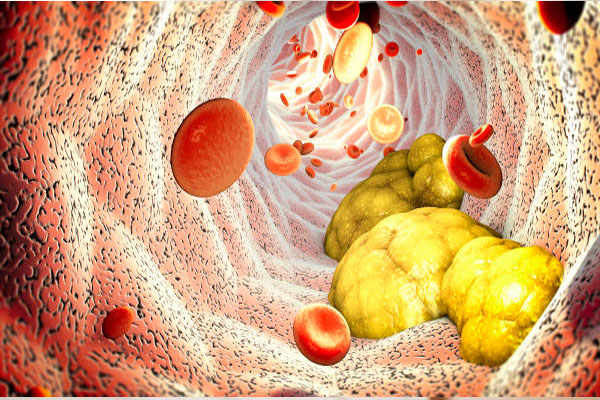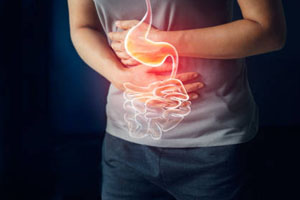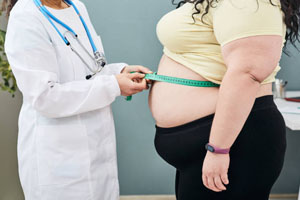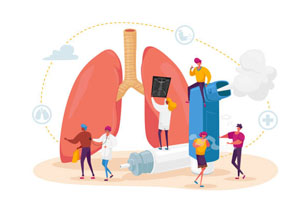Discover effective strategies for naturally lowering cholesterol levels Learn about dietary choices, exercise routines, and supplements to improve your heart health Find answers to common questions on cholesterol management in this comprehensive guide
If you're concerned about your cholesterol levels and looking for ways to improve your heart health, you're in the right place. Cholesterol is a critical component of our bodies, but when levels become elevated, it can lead to health issues. The good news is that many lifestyle changes and dietary choices can help you lower your cholesterol naturally. In this article, we'll explore the various aspects of cholesterol, its impact on your health, and practical steps you can take to manage it without relying on medication. Let's dive into the world of heart-healthy living and discover how you can make a positive impact on your cholesterol levels.

Understanding Cholesterol and Its Impact
What is Cholesterol?
The Basics of Cholesterol
Explain what cholesterol is, a waxy, fat-like substance that is found in the cells of your body. Mention its essential role in building cell membranes, producing hormones, and aiding in digestion.
Types of Cholesterol
Discuss the different types of cholesterol, including low-density lipoprotein (LDL) and high-density lipoprotein (HDL). Explain how LDL is often referred to as "bad" cholesterol, while HDL is known as "good" cholesterol.
Cholesterol Sources
Detail the sources of cholesterol, both dietary and internal production in the liver. Explain that while some cholesterol comes from the foods you eat, your body also manufactures its own cholesterol.
Cholesterol and Health
Highlight the importance of maintaining a healthy cholesterol balance. Explain that elevated LDL cholesterol levels are associated with an increased risk of heart disease and stroke, while higher levels of HDL cholesterol are considered protective.
Types of Cholesterol
Low-Density Lipoprotein (LDL) Cholesterol
Explain what LDL cholesterol is and its role in transporting cholesterol from the liver to various cells throughout the body. Emphasize that elevated LDL levels are associated with an increased risk of plaque buildup in the arteries and atherosclerosis.
High-Density Lipoprotein (HDL) Cholesterol
Describe HDL cholesterol and its function in transporting excess cholesterol from the bloodstream to the liver for elimination. Highlight that higher levels of HDL are considered beneficial as they help remove excess cholesterol from the body.
Very-Low-Density Lipoprotein (VLDL) Cholesterol
Discuss VLDL cholesterol and its role in transporting triglycerides, another type of fat, in the blood. Explain that high levels of VLDL may contribute to the buildup of plaque in the arteries, increasing heart disease risk.
Triglycerides
Explain what triglycerides are and how they are stored in fat cells as an energy source. Emphasize that high triglyceride levels can be a risk factor for heart disease, especially when combined with other lipid abnormalities.
The Role of Cholesterol in Health
Cell Membrane Structure
Explain how cholesterol is a crucial component of cell membranes, contributing to their flexibility and integrity. Discuss the role of cholesterol in maintaining the structural integrity of cells and allowing them to function properly.
Hormone Production
Detail how cholesterol is a precursor for the production of essential hormones, including sex hormones (estrogen and testosterone) and adrenal hormones (cortisol and aldosterone). Emphasize the significance of these hormones in various bodily functions.
Digestion and Bile Production
Describe how the liver uses cholesterol to produce bile acids, which are essential for the digestion and absorption of dietary fats. Explain that bile aids in breaking down fats in the small intestine, allowing the body to absorb essential nutrients.
Vitamin D Synthesis
Explain how cholesterol is a precursor for the synthesis of vitamin D when the skin is exposed to sunlight. Highlight the importance of vitamin D for bone health, immune function, and overall well-being.
Factors Influencing Cholesterol Levels
Diet and Nutrition
The Impact of Dietary Cholesterol
Explain how dietary sources of cholesterol, such as animal products, can contribute to elevated cholesterol levels in some individuals. Discuss the importance of monitoring dietary cholesterol intake and making informed food choices.
Trans Fats and Saturated Fats
Describe how trans fats and saturated fats in the diet can increase LDL cholesterol levels. Emphasize the importance of reducing or eliminating these fats from the diet to promote heart health.
Fiber and Heart-Healthy Foods
Discuss the role of soluble fiber and heart-healthy foods, such as oats, beans, and fruits, in lowering cholesterol levels. Explain how these foods can help reduce LDL cholesterol and improve heart health.
Physical Activity
Exercise and Cholesterol
Explain the positive impact of regular physical activity on cholesterol levels. Describe how exercise can increase HDL ("good") cholesterol and lower LDL ("bad") cholesterol, reducing the risk of heart disease.
Aerobic vs. Strength Training
Differentiate between aerobic exercises and strength training in terms of their effects on cholesterol. Highlight that both types of exercise offer unique benefits for heart health and cholesterol management.
Frequency and Duration
Provide guidelines on the recommended frequency and duration of physical activity for optimal cholesterol management. Emphasize the importance of making exercise a consistent part of one's routine.
Genetics and Family History
Understanding Genetic Factors
Discuss how genetics can play a role in cholesterol levels. Explain that some individuals may have a genetic predisposition to high cholesterol and may require special attention to manage their cholesterol effectively.
Family History and Risk Assessment
Highlight the importance of understanding one's family history of cholesterol-related conditions. Explain how a family history of heart disease or high cholesterol can influence an individual's risk and need for preventive measures.
Cholesterol Screening and Genetic Testing
Explain the value of cholesterol screening and genetic testing to assess one's risk and tailor cholesterol management strategies. Discuss how these tools can provide valuable insights for personalized health planning.
Natural Ways to Lower Cholesterol
Healthy Eating Habits
Adopting a Heart-Healthy Diet
Explain the principles of a heart-healthy diet, emphasizing the importance of whole grains, fruits, vegetables, lean proteins, and healthy fats. Provide practical tips for planning and enjoying nutritious meals.
Portion Control and Mindful Eating
Discuss the significance of portion control and mindful eating in managing cholesterol. Offer guidance on recognizing portion sizes and listening to one's body's hunger cues.
Limiting Added Sugars and Processed Foods
Highlight the adverse effects of added sugars and processed foods on cholesterol levels and overall health. Provide strategies for reducing sugar intake and making informed choices at the grocery store.
Regular Exercise and Physical Activity
Aerobic and Cardiovascular Exercise
Explain the benefits of aerobic and cardiovascular exercises in lowering cholesterol and improving cardiovascular health. Provide examples of activities like jogging, swimming, and cycling that promote heart health.
Strength Training and Muscle Development
Discuss the role of strength training in enhancing metabolism and supporting weight management. Explain how muscle development can contribute to better cholesterol profiles.
Flexibility and Stress-Reducing Activities
Describe the value of flexibility exercises and stress-reducing activities like yoga and tai chi. Emphasize their role in promoting overall well-being and heart health.
Dietary Supplements and Superfoods
Cholesterol-Lowering Supplements
Discuss dietary supplements known for their cholesterol-lowering properties, such as plant sterols and stanols. Explain how these supplements work and their potential benefits when used as directed.
Exploring Superfoods for Cholesterol Management
Introduce various superfoods that may have a positive impact on cholesterol levels. Highlight foods like oats, flaxseeds, and fatty fish and explain how they can be incorporated into a heart-healthy diet.
Consulting with a Healthcare Professional
Emphasize the importance of consulting with a healthcare professional before starting any dietary supplements or making significant dietary changes. Explain that personalized guidance is essential for safety and effectiveness.
Cholesterol-Lowering Recipes and Meal Plans
Low Cholesterol Breakfast Ideas
Simple Oatmeal with Berries
Provide a recipe for a heart-healthy breakfast featuring oats and antioxidant-rich berries. Explain how this meal can help lower cholesterol and provide sustained energy for the day.
Greek Yogurt Parfait
Offer a recipe for a yogurt parfait with Greek yogurt, granola, and fresh fruits. Highlight the benefits of probiotics in yogurt and the fiber content in granola for cholesterol management.
Vegetable Omelette
Share a recipe for a vegetable omelette packed with fiber-rich veggies. Discuss how this protein-rich breakfast can support weight management and cholesterol reduction.
Heart-Healthy Lunch and Dinner Recipes
Baked Salmon with Lemon and Herbs
Provide a recipe for baked salmon with lemon and herbs. Explain the omega-3 fatty acids in salmon that contribute to heart health and reduced inflammation.
Quinoa and Vegetable Stir-Fry
Offer a recipe for a quinoa and vegetable stir-fry. Discuss the benefits of quinoa as a complete protein source and the fiber and nutrients in the vegetables for cholesterol control.
Bean and Vegetable Chili
Share a recipe for a hearty bean and vegetable chili. Explain the fiber and plant-based protein in this dish and how it can support cholesterol management and overall health.
Snacks and Desserts for Cholesterol Control
Homemade Hummus with Veggies
Provide a recipe for homemade hummus served with fresh vegetable sticks. Discuss how this snack offers healthy fats, fiber, and plant compounds that can benefit cholesterol levels.
Fruit Salad with Citrus Drizzle
Offer a recipe for a refreshing fruit salad with a citrus drizzle. Highlight the vitamin C content in citrus fruits and the antioxidants in the colorful fruit medley that support heart health.
Dark Chocolate-Dipped Berries
Share a recipe for dark chocolate-dipped berries. Explain the potential benefits of dark chocolate and the antioxidants in berries for heart health when enjoyed in moderation.
FAQs (Frequently Asked Questions)
Q1: What is cholesterol, and why is it important to manage it?
A1: Cholesterol is a waxy, fat-like substance found in your body and in the food you eat. It's crucial for various bodily functions but can become a health concern when levels are too high. Managing cholesterol is important because elevated levels can increase the risk of heart disease and other cardiovascular issues.
Q2: Can I lower my cholesterol through diet and lifestyle changes alone?
A2: Yes, you can often lower cholesterol through dietary and lifestyle modifications. These changes include adopting a heart-healthy diet, engaging in regular physical activity, and making choices that promote overall well-being. In some cases, healthcare professionals may recommend medication alongside these strategies.
Q3: What foods should I incorporate into my diet to lower cholesterol naturally?
A3: To lower cholesterol naturally, focus on foods high in soluble fiber like oats, legumes, and fruits. Include heart-healthy fats from sources like olive oil and fatty fish. Minimize saturated and trans fats, and limit added sugars and processed foods. Superfoods such as nuts and flaxseeds can also be beneficial.
Q4: How does exercise help in lowering cholesterol levels?
A4: Regular exercise supports cholesterol management by increasing high-density lipoprotein (HDL) or "good" cholesterol and lowering low-density lipoprotein (LDL) or "bad" cholesterol. Aerobic exercises like jogging or swimming are particularly effective. Strength training can also improve muscle mass and metabolism, aiding cholesterol control.
Q5: Are there any dietary supplements that can help lower cholesterol naturally?
A5: Yes, some dietary supplements have been associated with cholesterol reduction. Plant sterols and stanols, available in supplement form, may help lower LDL cholesterol. However, it's essential to consult with a healthcare professional before adding supplements to your regimen, as they may interact with medications or have potential side effects.








